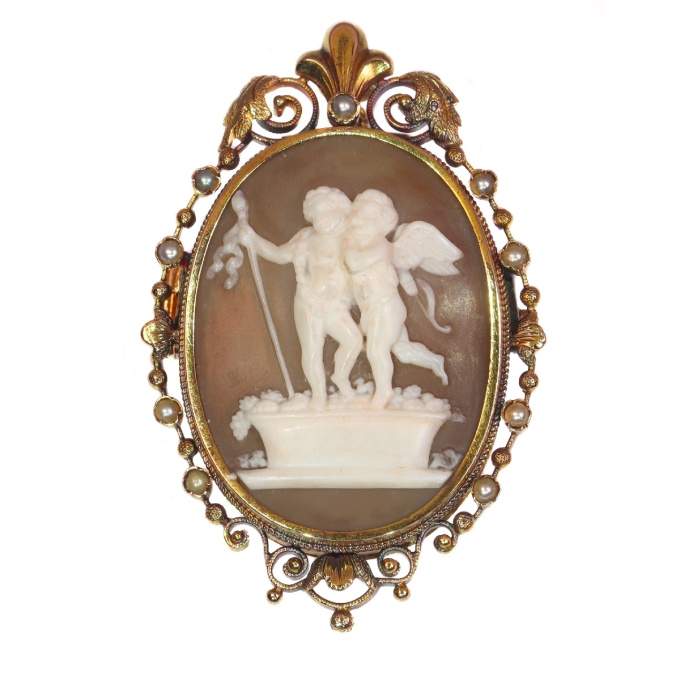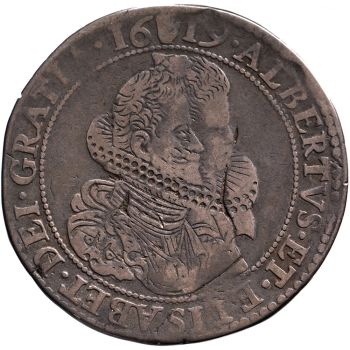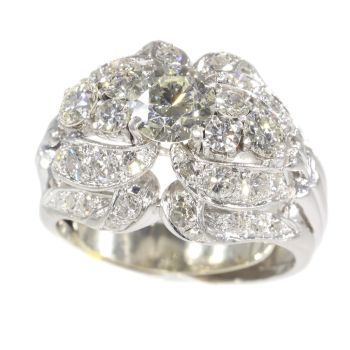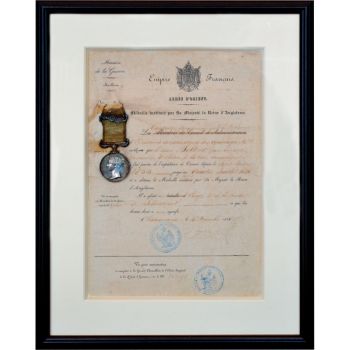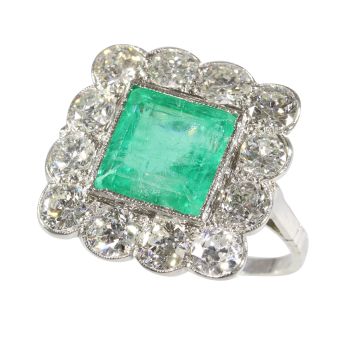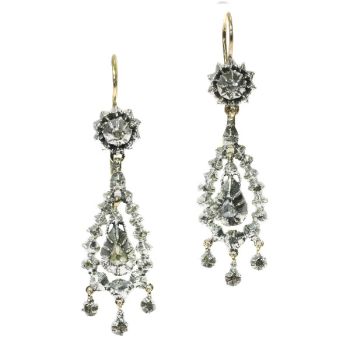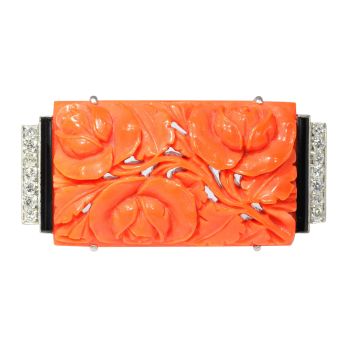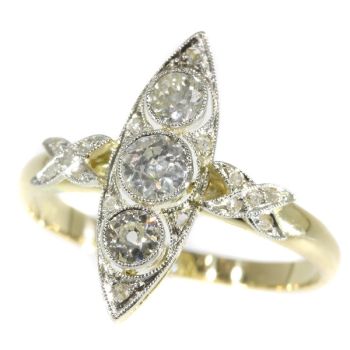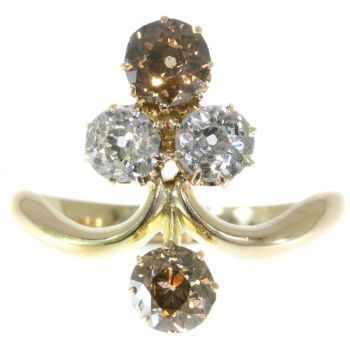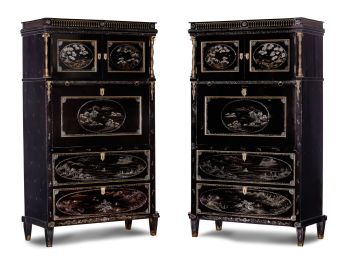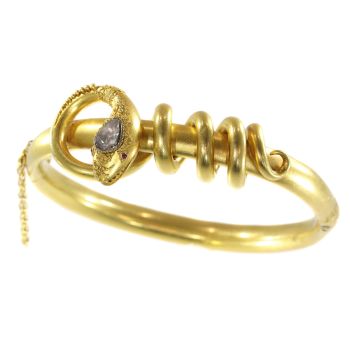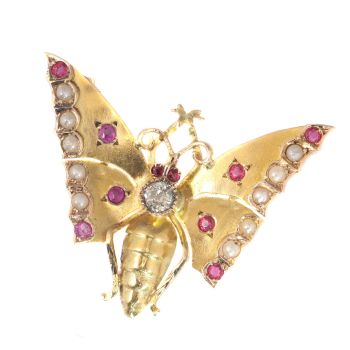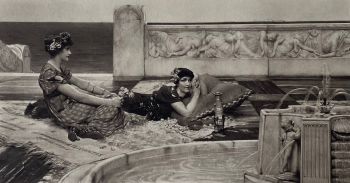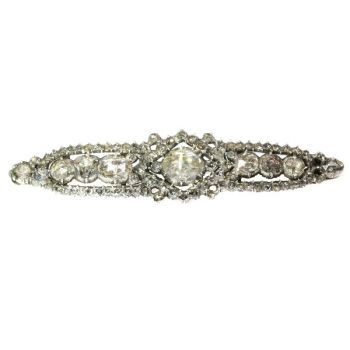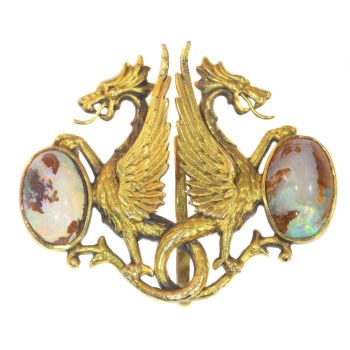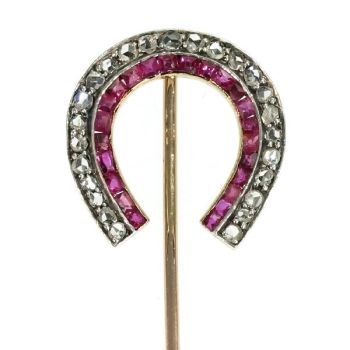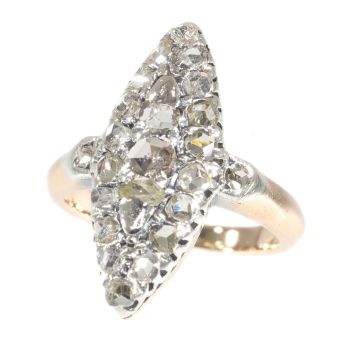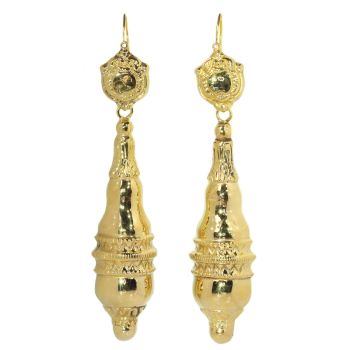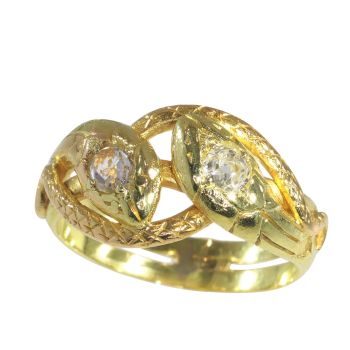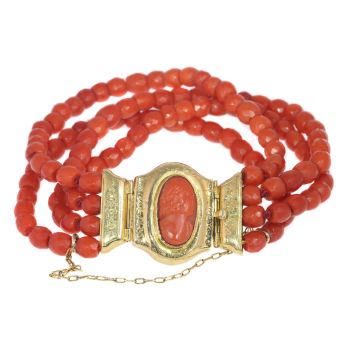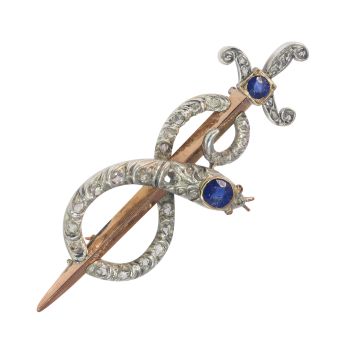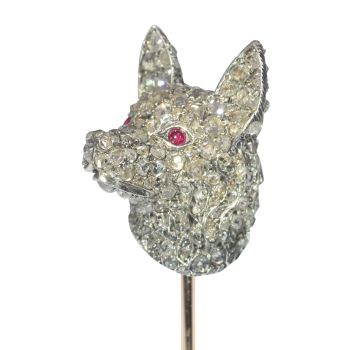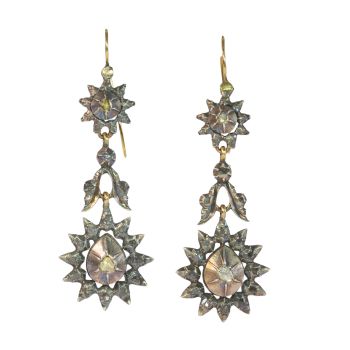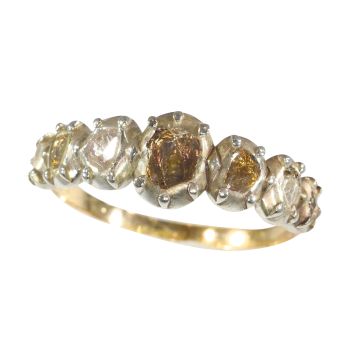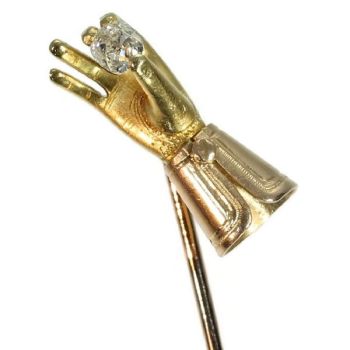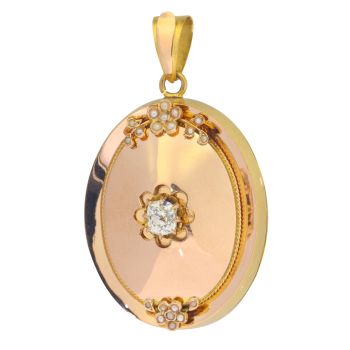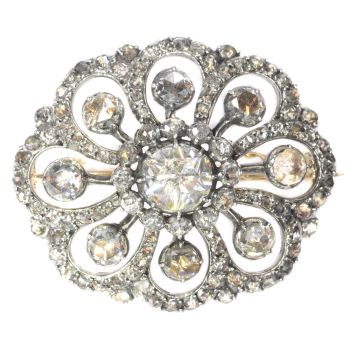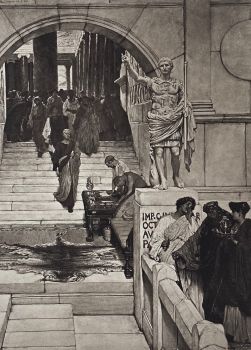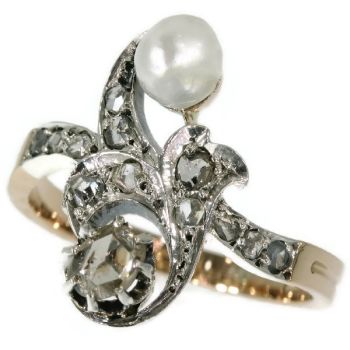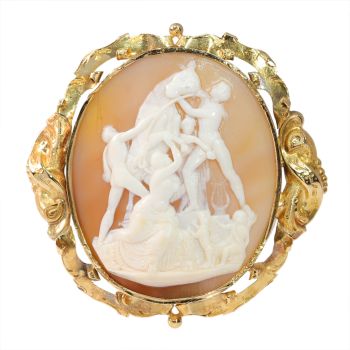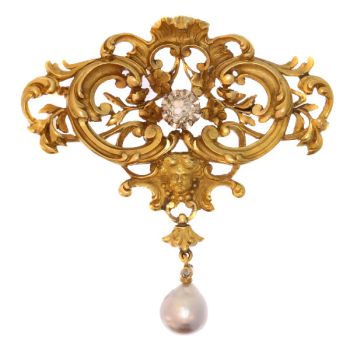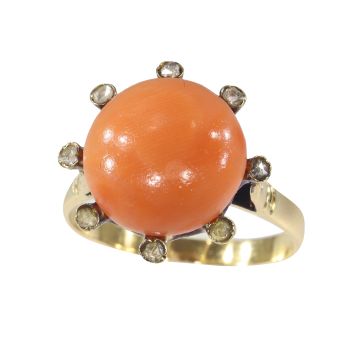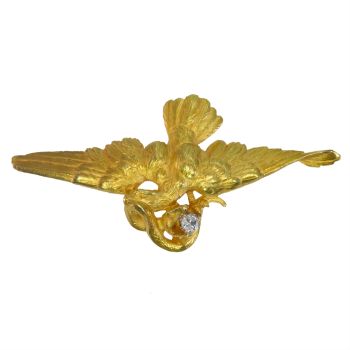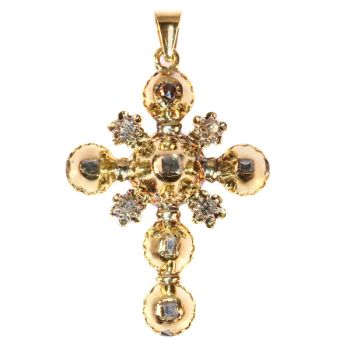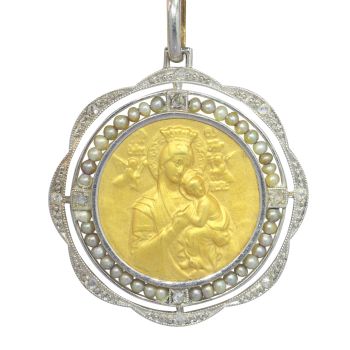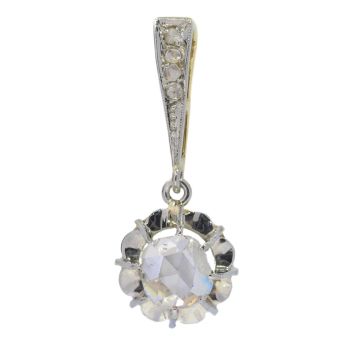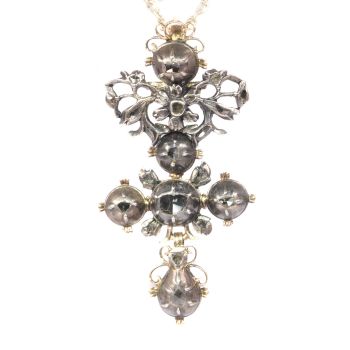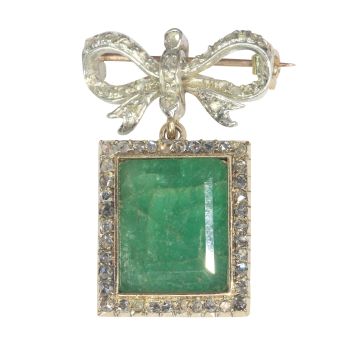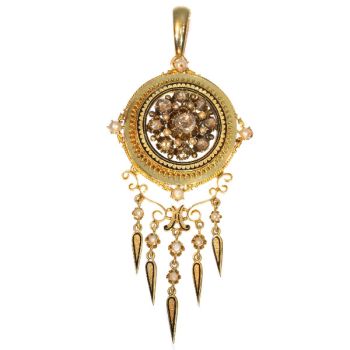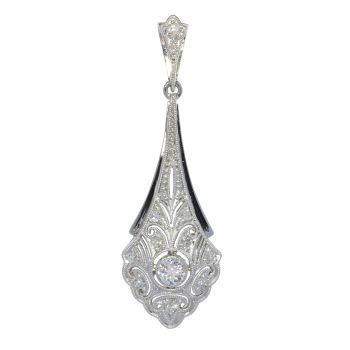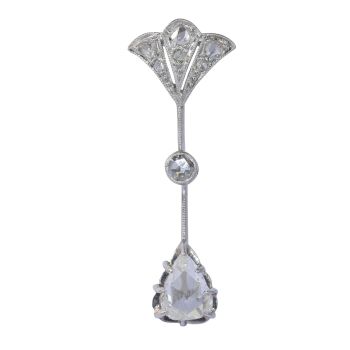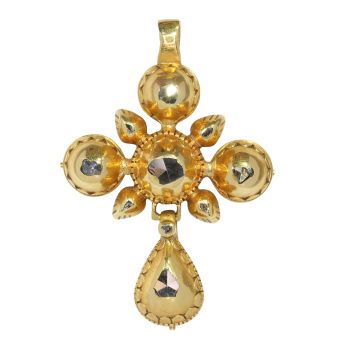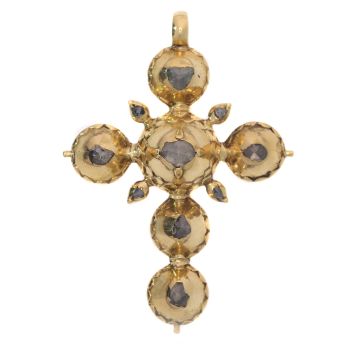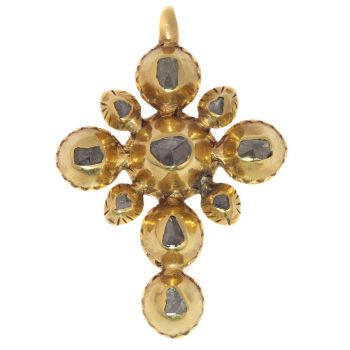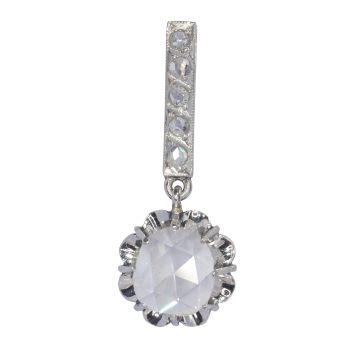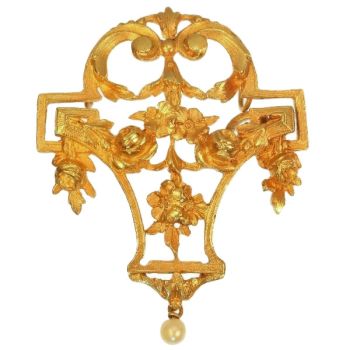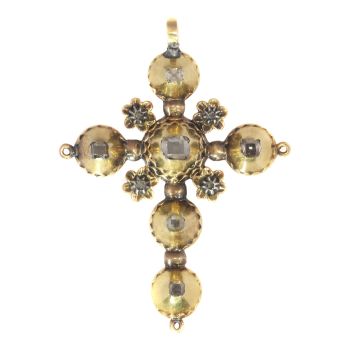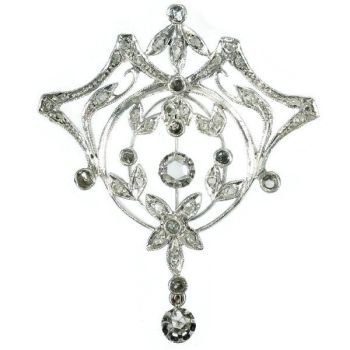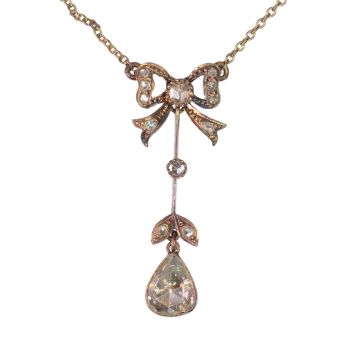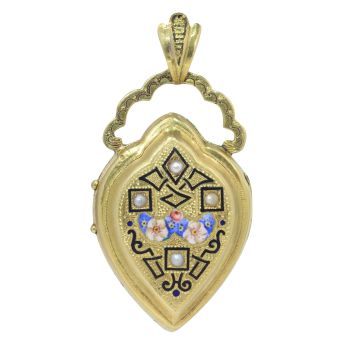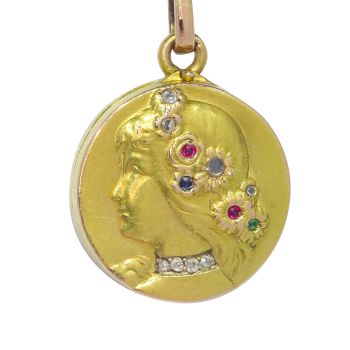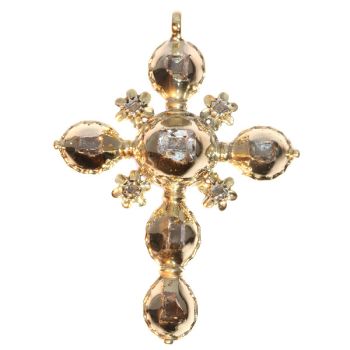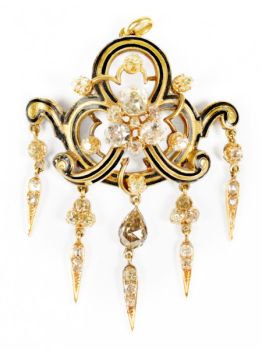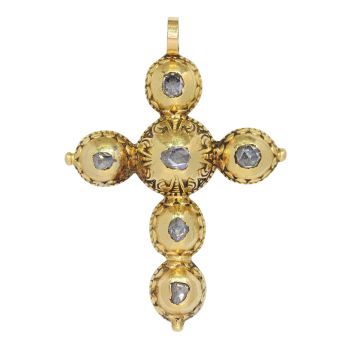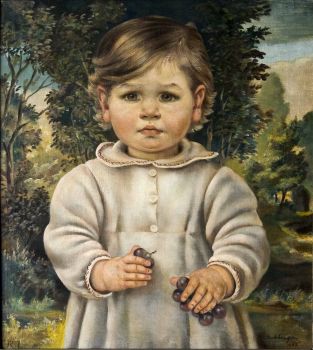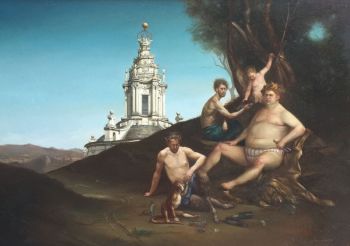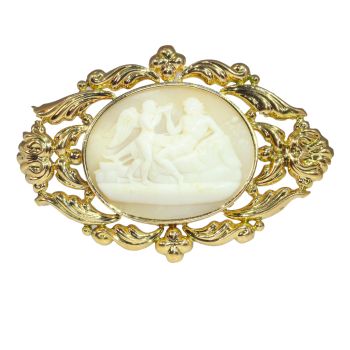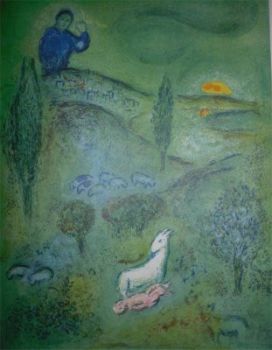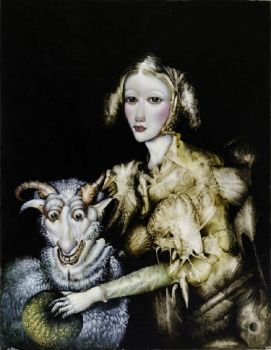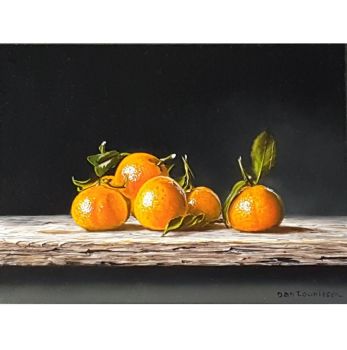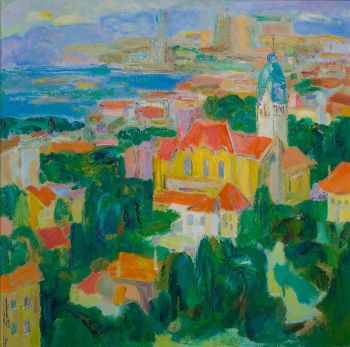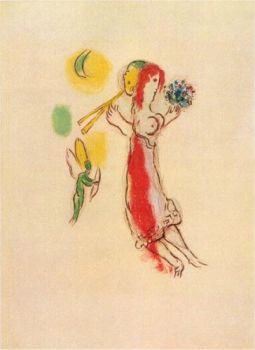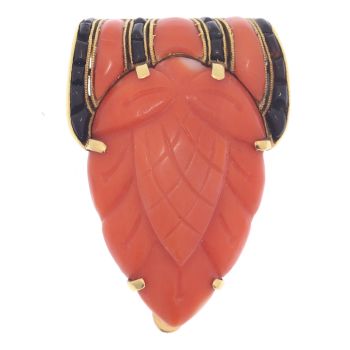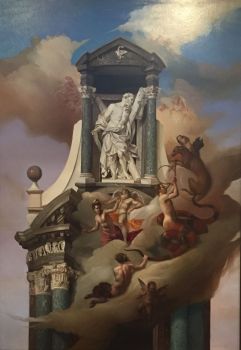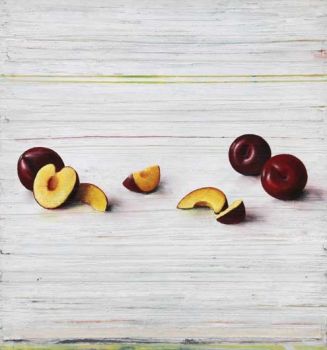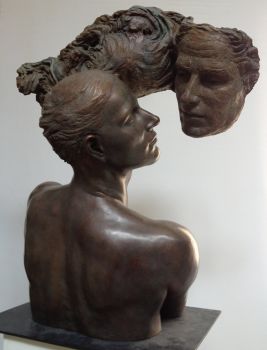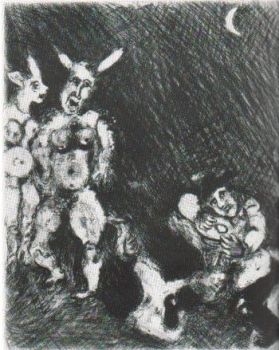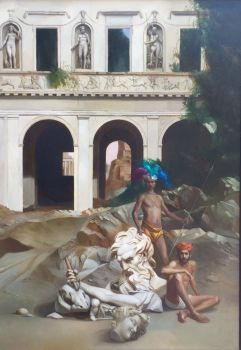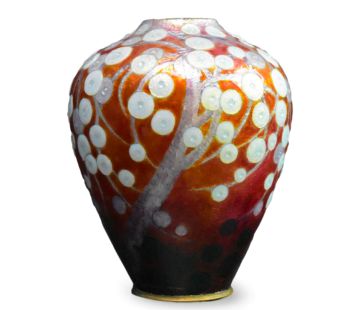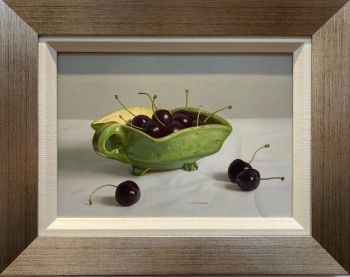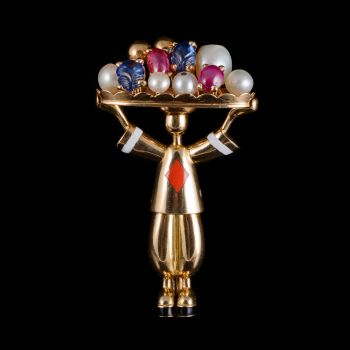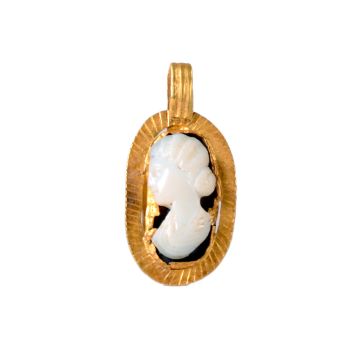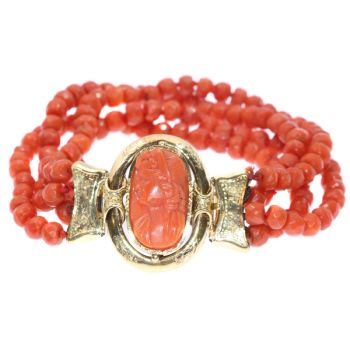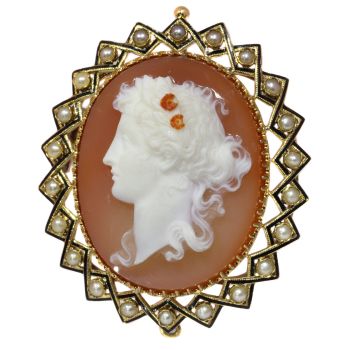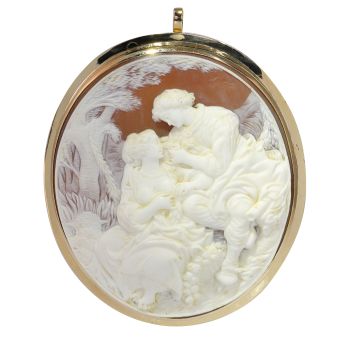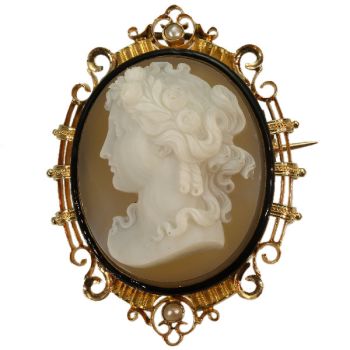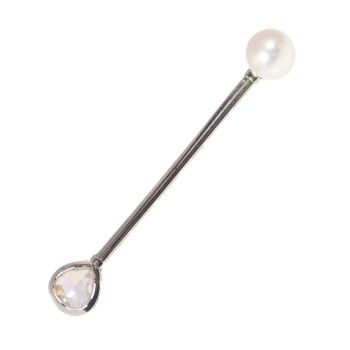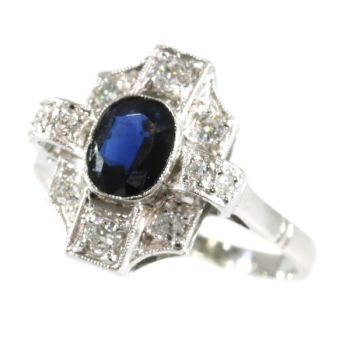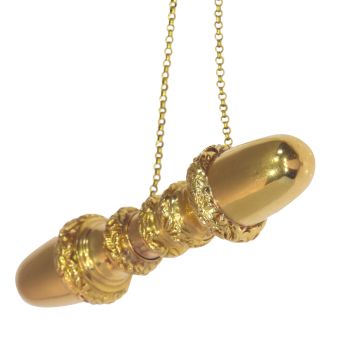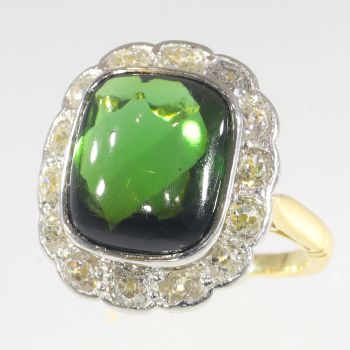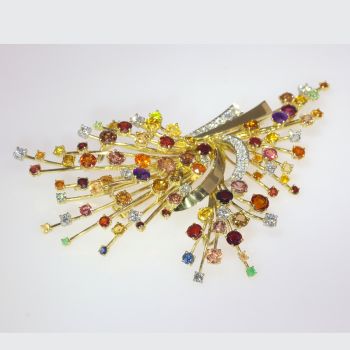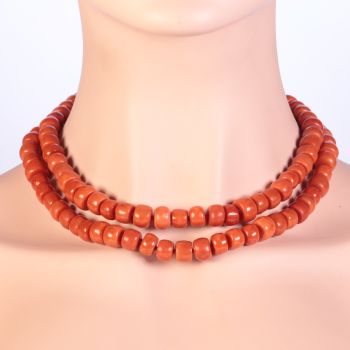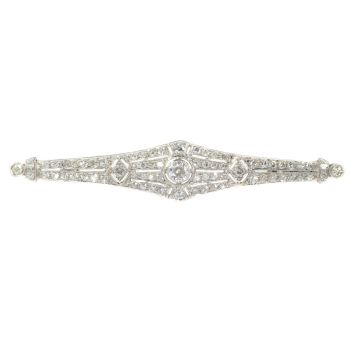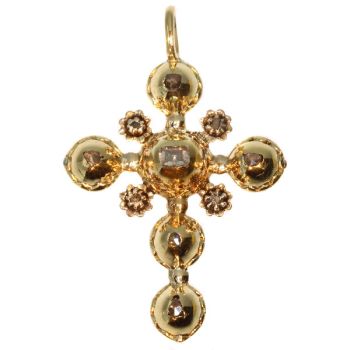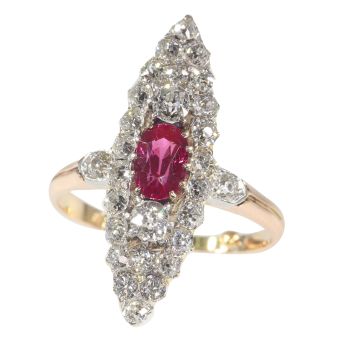Spilla/pendente con cammeo vittoriano con medaglione raffigurante Cupido e Bacco calpestano l'uva, A 1880
Artista Sconosciuto
Cammeo
€ 3.450
Adin Fine Antique Jewellery
- A proposito di opere d'arte
Antique jewelry object group
brooch and pendant with locket in the back
Condition
very good condition
more info on our condition scale
Country of origin
Unknown for the jewel itself but from the cameo it is not unlikely that it has been made in Italy
Style
Victorian - Victorian decorative arts refers to the style of decorative arts during the Victorian era. The Victorian era is known for its eclectic revival and interpretation of historic styles and the introduction of cross-cultural influences from themiddle east and Asia in furniture, fittings, and Interior decoration. Victorian design is widely viewed as having indulged in a regrettable excess of ornament. The Arts and Crafts movement, the aesthetic movement, Anglo-Japanese style, and Art Nouveaustyle have their beginnings in the late Victorian era.
- See also: Victorian
more info on styles
Style specifics
The Romantic Victorian Period - Experts divide the reign of Queen Victoria, also called The Victorian era (1837 - 1901) in to three periods of about twenty years each; The Romantic Victorian Period (1837 - 1860), The Grand Victorian Period (1860 -1880), and the Late or Aesthetic Victorian Period (1880 - 1901).
We consider this to be of the Romantic Victorian Period. This period covers the coronation of Victoria as Queen of Great Britain and Ireland, and her marriage to King Albert and their love, their devotion to their marriage and to their country are thesources of inspiration for this period. The jewels of this period are made of intricate carvings, special techniques where the enamel is subtly worked. These techniques allowed to give the jewel a certain opulence with less precious metal needed. Asprecious metals were really rare at that time. Highly favored (semi-) precious stones in this period are amethyst, coral, garnets, seed pearls and turquoises. The connotation is obviously sentimental, symbolic and romantic with reminiscent Gotic and/orRenaissance patterns and an abundant use of motifs like anchors, birds, branches, crosses, hearts and snakes.
Period
ca. 1880
Events & facts of this era, poetry of this era, fashion of this era.
Source of inspiration
After Thorvaldsen's relief that he made around 1810 depicting Cupid and Bacchus stomping grapes, see also pictures for the original relief as it can be seen in The Thorvaldsen Museum inventory number A413
Material
18K yellow gold (touchstone tested)
more info on precious metals
Technique
Cameo is a method of carving, or an item of jewellery or vessel made in this manner. It features a raised (positive) relief image. There are three main materials for Cameo carving; Shells or Agate (called a Hardstone cameo), and glass. Cameos can beproduced by setting a carved relief, such as a portrait, onto a background of a contrasting colour. This is called an assembled cameo. Alternately, a cameo can be carved directly out of a material with integral layers or banding, such as (banded) agateor layered glass, where different layers have different colours. Sometimes dyes are used to enhance these colours. Cameos are often worn as jewellery. Stone cameos of great artistry were made in Greece dating back as far as the 6th century BC. They werevery popular in Ancient Rome, and one of the most famous stone cameos from this period is the Gemma Claudia made for the Emperor Claudius. The technique has since enjoyed periodic revivals, notably in the early Renaissance, and again in the 17th, 18thand 19th centuries.
Precious stones
One cameo and ninenatural half seed pearls
Birthstones
Pearl is the birthstone (or month stone) for June.
more info on birthstones
Hallmarks
No trace.
more info on hallmarks
Dimensions
3,14 cm (1,24 inch) x 4,85 cm (1,91 inch)
see picture with a ruler in millimeters and inches
Weight
16,40 gram (10,55 dwt)
Adin Reference Nº
21130-0149
Copyright photography
Adin, fine antique jewellery
Sources
Book: Berthel Thorvaldsen (1770-1844) by Stefano Grandesso (ISBN 9788836619122) - page 104 for a picture of the bas relief
Additional information
our latest acquisitions
jewelry glossary
wall of fame
visit us in Antwerp
subscribe to our mailinglist
- A proposito di opere artista
Può succedere che un artista o un creatore sia sconosciuto.
Alcune opere non sono determinate da chi sono state realizzate o sono state realizzate da (un gruppo di) artigiani. Esempi sono statue dell'antichità, mobili, specchi o firme non chiare o leggibili ma anche alcune opere non sono affatto firmate.
Inoltre puoi trovare la seguente descrizione:
•"Attribuito a …." A loro avviso probabilmente opera dell'artista, almeno in parte
•“Studio di ….” o “Officina di” A loro avviso un'opera eseguita nello studio o nella bottega dell'artista, eventualmente sotto la sua supervisione
•“Cerchio di…” A loro avviso un'opera del periodo dell'artista che mostra la sua influenza, strettamente legata all'artista ma non necessariamente al suo allievo
•"Stile di..." o "Seguace di..." A loro avviso un'opera eseguita nello stile dell'artista ma non necessariamente da un allievo; può essere contemporaneo o quasi contemporaneo
•“Modalità di…” A loro avviso un'opera nello stile dell'artista ma di epoca successiva
•"Dopo …." A loro avviso una copia (di qualsiasi data) di un'opera dell'artista
•“Firmato…”, “Datato…” o “Iscritto” A loro avviso l'opera è stata firmata/datata/inscritta dall'artista. L'aggiunta di un punto interrogativo indica un elemento di dubbio
•"Con firma....", "Con data...", "Con iscrizione..." o “Riporta firma/data/iscrizione” a loro avviso la firma/data/iscrizione è stata aggiunta da qualcuno diverso dall'artista
Sei interessato ad acquistare questa opera d'arte?
Artwork details
Related artworks
Artista Sconosciuto
The Stamford Raffles Secretaires.1800 - 1813
Prezzo su richiestaZebregs & Röell - Fine Art - Antiques
1 - 4 / 12- 1 - 4 / 24
- 1 - 4 / 24
- 1 - 4 / 24
Daum Nancy
Daum Nancy – Tall rare early Art Nouveau vase executed in “Cygnes (swans)” motif – Circa 18921890 - 1899
Prezzo su richiestaAntiques Emporium
Artista Sconosciuto
François-Théodore Legras – Tall “Fleurs de Pommier” apple blossoms vase1900 - 1909
Prezzo su richiestaAntiques Emporium
1 - 4 / 10- 1 - 4 / 12

